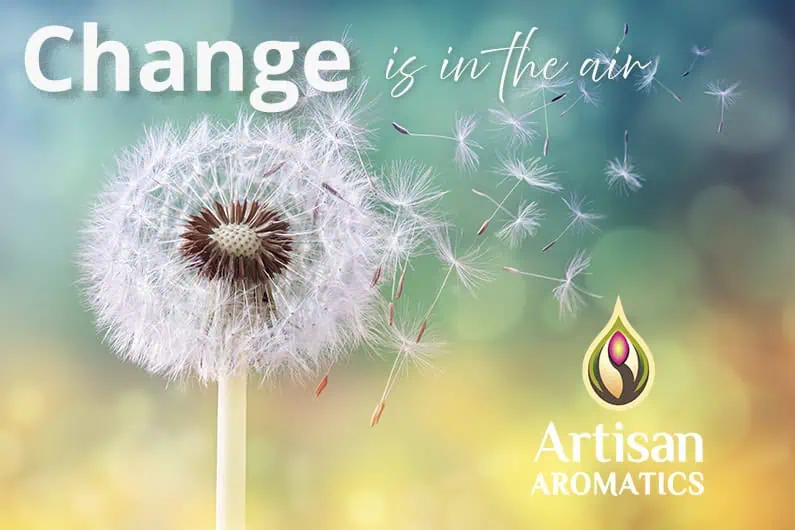One of the central claims of aromatherapy is that scents can affect mood and evoke memories. If the smell of baking cookies, a smoky campfire, or a lover’s favorite perfume have ever transported you back in time, calling up long-forgotten events and feelings, then you have experienced the powerful association between aromas, emotions, and memories. Long before modern scientists began the study of the physiological processes that underlie this association, human beings were exploring and utilizing the power of fragrant substances in their daily lives. Many ancient cultures, including those of India, China, and Persia have left records that document their use of fragrance for its effect on mental states and feelings. The Egyptians, in particular, made extensive use of incense and fragrant oils in their religious rituals. Kyphi, an incense containing at least 16 herbs and other fragrant plants such as Juniper, Cinnamon, and Myrrh, was used by Egyptian priests to facilitate the attainment of ecstatic states during religious rites. Virtually every culture has reported erogenous properties for various fragrances and in the harems of the ancient Middle East, Sandalwood and Rose were prized for enhancing sexual desire. Modern aromatherapists, such as Valerie Ann Worwood, have reported highly selective effects for specific essential oils. For example, Frankincense and Cypress have been claimed to aid in dispelling grief, while Ylang Ylang and Juniper are claimed to aid in coping with guilt. As far as I know, their is no research evidence to support these specific claims but Worwood may have observed such effects herself.
Today, we continue to be aware of the impact of aromas on moods and other aspects of our states of mind, such as alertness, sexual drive, and aggressiveness. Retailers have even attempted to cash in on our innate responsiveness to scents by impregnating the air in their stores with fragrances which they believe will stimulate shoppers to make purchases. Their efforts often go awry, however, because those attempting to utilize aromas in this way frequently fail to distinguish between the possible beneficial effects of natural plant aromas and the deleterious effects of synthetic fragrances, which cause headaches and other unpleasant symptoms in many people.
Modern research supports our intuitive recognition of the impact of aromas on mood and other mental states. Different essential oils have been shown to produce consistently different brain wave patterns on EEG, even when experimental subjects have reported little perceived difference between the odors and have not noticed changes in mood or alertness. Findings such as these suggest that aromas can have subliminal, or unconscious, effects on our mental states and it is precisely this subliminal effect that aromatherapists hope to capitalize on when they suggest diffusing specific essential oils into environments where people are likely to feel anxious or agitated. In her book, The Fragrant Mind, Valerie Ann Worwood suggests diffusing essential oils such as Lavender in prisons and holding cells to help keep inmates calm and less aggressive. She suggests that in addition to having specific relaxing and calming effects, some essential oils may help to bring out the more positive aspects of peoples’ personalities and attitudes.
Aromas are now utilized by a growing number of people in a conscious, intentional way in hopes of achieving specific effects on mood and mental states.
Citrus oils, for example, have been described by aromatherapists as being uplifting, gently stimulating, and conducive to alertness and concentration, while the essential oils of Lavender, Clary Sage, and Roman Chamomile are often said to be relaxing and soothing. With this knowledge, you might choose to diffuse a small amount (3 or 4 drops) of Grapefruit oil in your work space in order to support your efforts on an important project, or, you might similarly use essential oil of Clary Sage when you want to relax and feel comforted after a stressful event. Many people have reported success with these types of uses od essential oils but the results are not always the same for everyone and the only way to know how, and even if, a specific essential oil will affect you is to try it.
Through a psychological process known as “conditioning,” any odor may acquire the ability to elicit a memory of a specific event, and the feelings associated with that event, if the odor was present during the person’s original experience. This can have positive or negative consequences. One of my former aromatherapy instructors reported that because essential oil of Lavender was used as a disinfectant in morgues and on injury wards in England during WWII, the smell of this oil can elicit very painful memories and feelings of grief in some British people. This example illustrates very well why a person’s individual experience with an aroma must be considered before one tries to utilize it for beneficial purposes. However, by taking individual experience into account, it appears that effective use can sometimes be made of the strong associations that are formed between memories and aromas. Students can try utilizing this association in a practical way by diffusing a small amount of any personally pleasing, uplifting, non-toxic essential oil into the room while they study and then later inhaling a little bit of the same aroma from a bottle while taking their test. There is a good chance that recall will be stimulated, at least to some extent, by inhaling the same aroma that was used while studying. Don’t assume that you can study less, however!
The bond between odor and memory also provides a potential tool in psychotherapeutic settings, where practitioners may be able to facilitate recall of events by presenting aromas that were linked with those events. In addition, therapists may utilize classical conditioning techniques to “pair” specific odors with desirable mental states (such as “relaxation”) so that the odor may later be used to elicit the state. It is even possible that some complex physiological reactions could be classically conditioned by pairing specific odors with the administration of certain drugs by a physician.
There are many ways to enjoy the subtle effects of aromas at home. First, use only aromatic substances that are completely natural, as synthetic fragrances do not have the beneficial actions of natural ones and can cause headaches, palpitations, and other unpleasant symptoms. Consider your personal experiences and try to determine from these experiences which aromas may have beneficial associations and which may have been associated with distressing events. For personal use at home, stick with aromas that have pleasing associations and effects. In addition to using essential oils for their aromas, fresh or dried herbs, flowers, or even some foods (such as apple pie) may be placed about the home so that their scents disperse into the air. In the spring and summer, a trip to the garden can provide a magical aromatic experience that is enhanced by the sight and feel of the plants and the sounds of chirping birds, rustling foliage and flowing water. Weeding and working for thirty minutes in a patch of basil, lavender, mint, or other aromatic plant is a wonderful way to relax and lift the spirits. Or, plant something fragrant next to a window. Plants that release their fragrance at night, such as nicotiana, are wonderful planted outside a bedroom window.
*This information is provided for educational interest and is not intended to diagnose, treat, or cure any disease. None of the information provided here is intended to make claims for the actions or benefits of any products of any kind.
Copyright © 2010 Joie Power, Ph.D. / The Aromatherapy School | All Rights Reserved



1 thought on “Aromatherapy and Emotions”
Thank you for explaining how there are lots of different ways to enjoy aromas in your home. My sister has been talking about getting a diffuser for her home. I think that it could help her with having more concentrated smells.